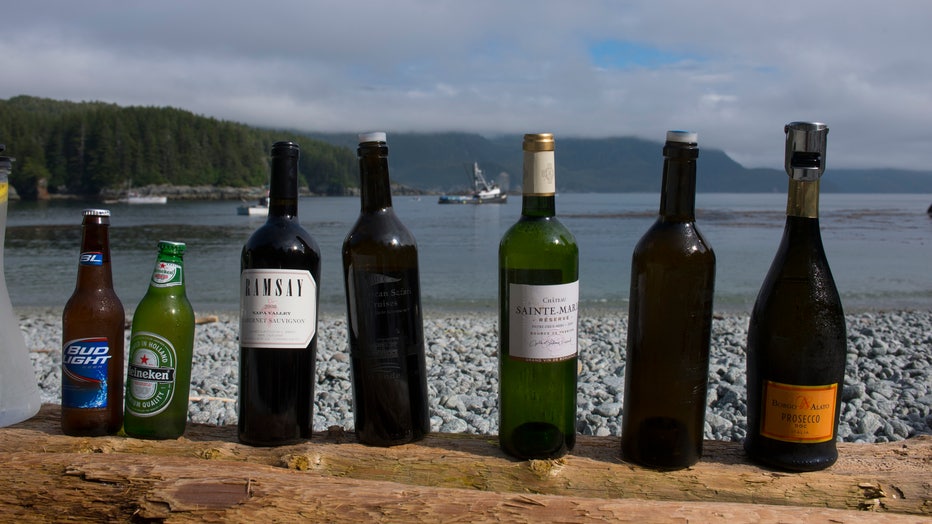'Beer before wine and you'll feel fine?' Study dispels hangover myths

Alcohol guidance from the CDC
Alcohol can have very dangerous long-term effects on a person's health if abused.
There’s no shortage of sayings people have to distract themselves from the inevitable hangover that follows a night of drinking: "Beer before wine and you'll feel fine; wine before beer and you'll feel queer."
"Beer before liquor makes you sicker; liquor before beer and you’re in the clear."
They may sound cool – and they rhyme – but are any of them true? A group of researchers at Herdecke University in Germany decided to find out.
"To put an end to this uncertainty, we scientifically evaluated whether or not this time-honored wisdom truly reduces a hangover burden," the scientists said in the study, which was published in the American Journal of Clinical Nutrition.
How did the study work?
The researchers took 90 students from a university in Germany and divided them into three groups. The first group was given 5% ABV (or alcohol by volume – a measure of alcoholic strength) Pilsner beer. They drank until their BAC (breath alcohol concentration) measured .05%, then they switched to an 11% ABV white wine until their BAC reached .11%.
RELATED: Drinking alcohol could increase risk of more than 60 diseases, study suggests
The second group drank the same amount and types of booze, but they started with the white wine and then switched to beer. The third group, the control group, drank only beer or only wine.

FILE - Beach bar for passengers of cruise ship Safari Endeavour on beach in bay at George Island, off Chichagof Island, Tongass National Forest, Alaska. (Photo by Wolfgang Kaehler/LightRocket via Getty Images)
Researchers monitored the drinkers’ "drunk" levels and asked how they were feeling. They also fed them meals and water, then sent them to bed at the site of the study.
The next day, the study participants rated the severity of their hangovers on a scale of 0 to 7, based on the following symptoms: thirst, fatigue, headache, dizziness, nausea, stomach ache, tachycardia and loss of appetite.
RELATED: Moderate alcohol consumption has no health benefits, analysis finds
Roughly a week later, researchers did it all again, but switched the order of drinking for everyone involved.
Does drinking beer first – or last – help with a hangover?
It turns out, that drunken wisdom you got from the frat party is not backed by science.
"Our findings dispel the traditional myths ‘Grape or grain but never the twain’ and ‘Beer before wine and you'll feel fine; wine before beer and you'll feel queer’ regarding moderate-to-severe alcohol intoxication," the researchers said. "Neither type nor order of consumed alcoholic beverages significantly affected hangover intensity."

Beer tank malfunction sends brewer flying across room
See the moment a Minnesota beer brewer was thrown to the ground by a powerful stream of New England IPA.
Researchers found that "subjective signs" of someone getting drunker as the night went on were more accurate predictors of how bad the hangover would be. "Perceived drunkenness" and vomiting were the strongest predictors for a hellacious hangover the next day.
How to help a hangover
There’s only one tried and true way to be hangover-free – drinking much less or not at all – though there are plenty of other methods people swear by to try and avoid them.
If you’re going to imbibe, doctors say pacing yourself, drinking water in between drinks and stopping at least a few hours before you go to bed can help.
RELATED: From greasy foods to ‘ice bowl challenge’: How to cure a hangover
"Depending on your weight and other factors, it takes about one hour for a healthy liver to process a unit of alcohol," Dr. Zoe Williams told SWNS. "Consider stopping drinking well before the end of the evening, so the process can begin before you go to bed."
FOX’s Austin Williams contributed to this report.

